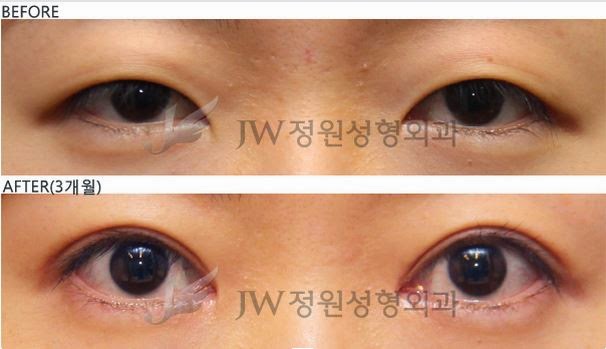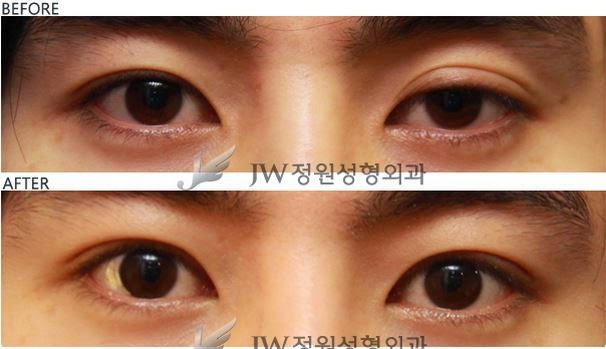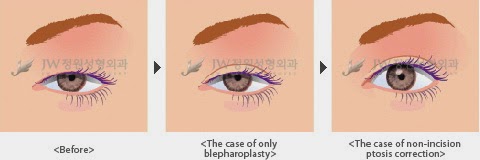Basically blepharoplasty procedures are
- Double Eyelid Surgery
- Non-incision Ptosis Correction
- Incision Ptosis Correction
- Dual Epicanthoplasty
- Dual Lateral Canthoplasty
- Upper Eyelid Wrinkle Surgery
- Lower Eyelid Surgery
- Revision
- Double eyelid surgery
▶Non-incision method

A non-incision method is used to connect the muscle and inner skin of the eyelid to create new crease. It is more suitable for those in their teens or twenties who have tighter skin. For those who have thicker skin or a greater fat layer, incision was preferred because the creases might not hold, but recently with surgical advancement non-incision methods are also being used. In the case drooping or falling of the eyelid, sometimes referred to as “lazy eye”, blepharoplasty surgery must be done in conjunction with ptosis correction.

▶Partial incision method



Incision requires a cut on the line of the eyelid and removing a required amount of tissue (skin, muscle, fat, connective tissue) while connecting the dermis to the tarsi allowing the cicatrix(scar) between the two tissues to make a deep and natural double eyelid. Patients with sagging skin, thick muscles or fat layers, incision is highly recommended. The possibility of the double eyelid becoming undone is smaller than the non-incision surgery because the stitches would be tighter allowing for them to last longer. Swelling will last longer and a longer period of time is required for a more natural look.

Double eyelids that starts inside of the eye are the most appropriate type for those who do not have serious an epicanthic fold. Creases of the eyelids are not seen in the inner corner and the size and height of the creases are small. The shape of the crease increases from the center to the outside of the eyelids.
In-Outfold
- Non-incision and Incision ptosis correction
Ptosis correction was only performed by an incision in the past because the orbicularis oculi lie in the deepest part of the eye and excess tissue must be remove along the way.
The eye-opening muscles are connected through the conjunctiva with a special suturing thread by making tiny holes under the crease of the eyelid and pulling the muscles and tarsus together.
▶Advantages of JW non-incision ptosis correction
- There is usually no scar due to the size of the incision.
- It is a fast recovery with little swelling because little or no damage is done on the tissue.
- Surgery itself is very short.
- Restoring the eyelid back to its original state is easily done by unbinding the buried suture.
- People whose ptosis is not very severe
- People who want to have ptosis correction with little inconvenience to daily life
- People who want larger eyes without an incision







